River corridors for beavers and other wildlife
The Making Space for Water programme is working with farmers and other land managers to build a network of nature-rich rivers and wetlands where beavers and other wildlife can flourish throughout South West England.
These networks will support the recovery of beavers, improve the health of our rivers and wetlands, and provide multiple other benefits for the environment and communities in Devon. Find out more by reading the brochure, or watching the video below.
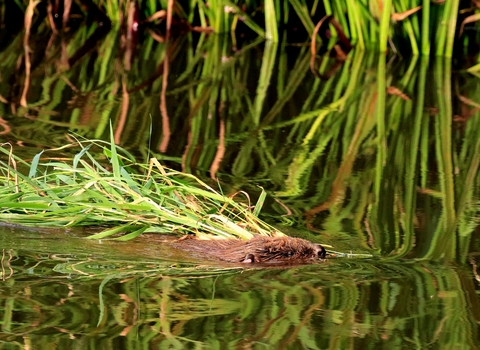
David R White
Support our vision!
We are currently seeking funding partners and land managers to work with us to deliver positive change for Devon's waterways and their iconic inhabitants. Whether you are a funder or a land manager who is interested in creating river corridors for beavers we want to hear from you!
Contact our Green Finance Officer, Holly Barclay, to find out more:
What beavers can do for us
Beavers are ecosystem engineers: they possess a remarkable capacity to modify their environment in a way that suits them. In small streams, beavers build dams which slow the flow of water and create dynamic wetland habitats. In doing so, beavers can deliver significant benefits for nature and people: reducing the risk of downstream flooding, improving water quality, enhancing biodiversity and providing more resilient water supplies.
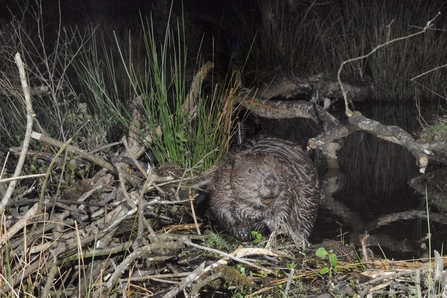
Beavers build dams to create deeper areas of water where they feel safe from predators. Photo by Nick Upton / naturepl.com.
An extensive body of scientific research has demonstrated that when beavers build dams and create wetlands in the right places there will be significant benefits for society. This includes studies exploring the impacts of Devon’s beavers led by scientists at the University of Exeter as well as research on beavers from mainland Europe and North America.
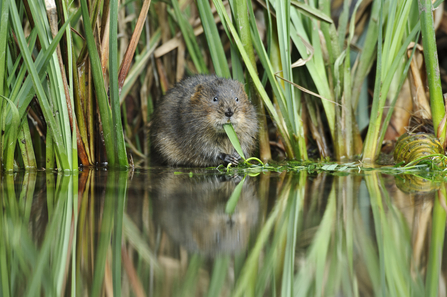
Beavers are referred to as a keystone species because the complex habitats they create benefit a range of other species, including water voles (Arvicola amphibius). Photo by Terry Whittaker/2020VISION.
The benefits and costs of beavers are not distributed evenly
It is important to recognise that not everyone benefits from the presence of beavers in a catchment. One of the key conclusions of the River Otter Beaver Trial was that:
“At the catchment scale, benefits [of beavers] can accrue in the same locations as costs (e.g. biodiversity gains on flooded land), but also in different locations (e.g. downstream flood reduction due to floodplain inundation). Thus, those who benefit from beaver reintroduction may not always be the same people as those who bear the costs.”
Brazier et al. (2020) River Otter Beaver Trial: Science and Evidence Report
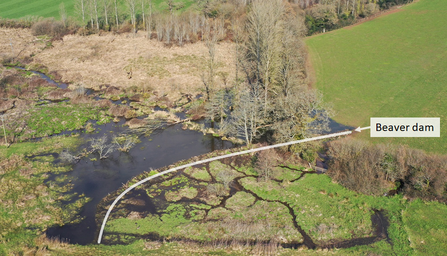
The wetlands formed behind beaver dams store large volumes of water, filter out pollutants and reduce downstream flood risk. However, there are currently few incentives for land managers to make space for these important habitats. Photo by Alan Puttock
Rewarding the farmers and land managers who make space for beavers
The Making Space for Water programme aims to bring together businesses and other organisations who benefit from beavers to provide financial support which rewards farmers and other land managers who make space for beavers on their land.
Realising the benefits of beaver-created dams and wetlands relies on the capacity to make space for wetlands in the landscape. This sometimes requires a transition in land use and land managers need support to achieve this change.
A targeted approach for the cost-effective delivery of nature-based solutions
Our goal is to secure a network of river corridors throughout Devon – beginning in the Otter and Tamar catchments - which can accommodate the growing population of beavers and deliver a range of other benefits.
Working in partnership with leading experts at the University of Exeter we are using innovative spatial maps and models to target financial support for land managers in areas where making space for beavers will deliver measurable environmental benefits, including natural flood management, water quality enhancement and increased biodiversity.
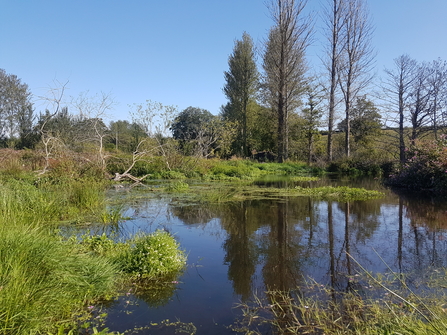
The Making Space for Water programme will work with land managers to create river corridors where beavers can settle and create wetlands in areas where the benefits of these wetlands are maximised.
Want to know more?
Read the Making Space for Water programme brochure below, or contact our Green Finance Officer, Holly Barclay, at beavers@devonwildlifetrust.org.
Thank you to the Making Space for Water programme funders:

and the Adrian Swire Charitable Trust. DWT would like to thank all our funders, members and supporters who have enabled England’s first wild beaver reintroduction and our advisory services.
